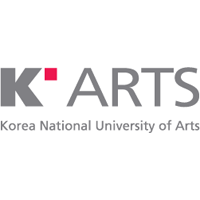
Seoul National University is a national research university located in Seoul, South Korea.

Daegu, formerly spelled Taegu and officially known as the Daegu Metropolitan City, is a city in South Korea, the fourth-largest after Seoul, Busan, and Incheon, and the third-largest metropolitan area in the nation with over 2.5 million residents. Daegu and surrounding North Gyeongsang Province are often referred to as Daegu-Gyeongbuk, with a total population over 5 million. Daegu is located in south-eastern Korea about 80 km (50 mi) from the seacoast, near the Geumho River and its mainstream, Nakdong River in Gyeongsang-do. The Daegu basin, where the city lies, is the central plain of the Yeongnam region. In ancient times, there was a proto-country named Jinhan, to which the current Daegu area belonged. Later, Daegu was part of the Silla Kingdom which unified the Korean Peninsula. During the Joseon Dynasty period, the city was the capital of Gyeongsang-do, which was one of the traditional eight provinces of the country.

Gwacheon is a city in Gyeonggi-do Province, South Korea. It lies close to Seoul in the heart of the Seoul National Capital Area, and also lies just east of Anyang. Seoul Subway Line 4 passes through the city.

Seongnam is the second largest city in South Korea's Gyeonggi Province after Suwon and the 10th largest city in the country. Its population is approximately one million. Seongnam is a satellite city of Seoul. It is largely a residential city located immediately southeast of Seoul and belongs to the Seoul National Capital Area.
Lee Soo-man is a South Korean record producer and executive best known as the founder of SM Entertainment, a global entertainment company based in Seoul, South Korea. He has also been referred to as the president of culture, as he was a pioneer of the Korean Wave. Lee made his debut as a singer in 1971, while he was a student at Seoul National University. He founded SM Entertainment in 1989, which is now one of the largest record label and management companies in South Korea.

Korean arts include traditions in calligraphy, music, painting and pottery, often marked by the use of natural forms, surface decoration and bold colors or sounds.

Sejong Center for the Performing Arts is the largest arts and cultural complex in Seoul, South Korea. It has an interior area of 53,202m². It is situated in the center of the capital, on Sejongno, a main road that cuts through the capital city of the Joseon Dynasty. The center took 4 years to complete, opening in 1978. It was "built as a cultural center for Seoulites." It currently contains the biggest pipe organ in Asia.

Sumi Jo is a Grammy Award-winning South Korean lyric coloratura soprano known for her interpretations of the bel canto repertoire.
Myung-whun Chung is a South Korean conductor and pianist. A student of Olivier Messiaen, he is particularly known for his interpretations of the French composer's works.

Daehangno is a neighborhood in Seoul north of the Han River within Jongno-gu and Seodaemun-gu.

Korea National University of Arts is a national university in Seoul, South Korea. Korea National University of Arts was established in 1993 by the Ministry of Culture, Sports and Tourism of Korea as the only national university of arts with an aim to serve as a leading institution which cultivates artists. It has 26 departments in six schools: Schools of Music, Drama, Film TV & Multimedia, Dance, Visual Arts, and Korean Traditional Arts.
Dr. Philip Jameson graduated from Wooster High School in 1959 and attended Baldwin Wallace College for one year. In the Fall of 1960 he was accepted by audition to The Juilliard School of Music on a full scholarship. He was subsequently appointed principal trombone with the Juilliard Orchestra, a position he held for the next five years. He graduated from Juilliard with a Bachelor of Music Degree in 1964 and a Master of Science degree in 1965. He then enrolled in Columbia University (NYC) and received a Master of Music Education Degree in 1967 and completed his Doctorate of Music in 1980. His PhD dissertation was entitled "The effect of timbre conditions on the prompted and simultaneous pitch matching of three ability groups of trombone performers". It is available from Dissertation Abstracts.
Seo Jung-hack is a South Korean baritone singer.
Youngmi Kim is a South Korean soprano opera singer. She was born in Daegu, South Korea. She is a famous vocalist who has sung in operas and concerts internationally and has appeared on television shows, primarily in South Korea.

Kolleen Park is an American-born South Korean musical director, conductor, and actress, and is also a judge on the Korean talent show Korea's Got Talent.

Samoo Architects & Engineers (SAMOO), headquartered in Seoul, South Korea, is a multinational professional services firm which provides architectural design, engineering, interior design, urban design, sustainable design, construction management, and building information modeling services. Currently the firm has over 760 employees based in offices located in Seoul, South Korea, New York, NY, U.S.A., Abu Dhabi, UAE, Doha, Qatar, Shanghai, China, Hanoi, Vietnam, Austin, TX, U.S.A.

Lim Hyung Joo is a UN Peace Medal winning South Korean operatic pop (popera) tenor and classical crossover singer. He has sold more than 1.2 million (1,200,000) records worldwide, including over 1 million (1,000,000) in South Korea, and his total digital songs, singles and albums sold more than 10 million (10,000,000) units.













